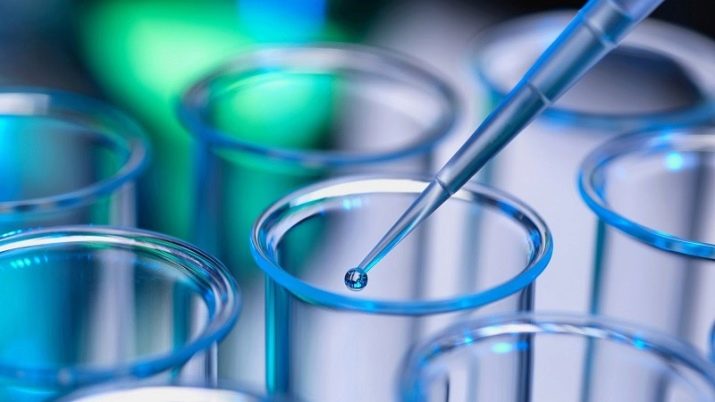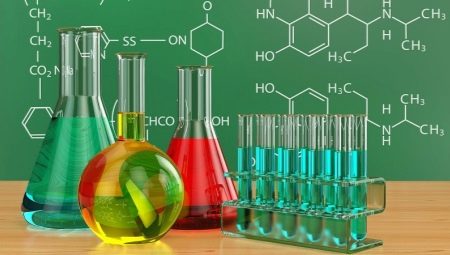Work as a chemistry teacher is not very familiar to most people. Meanwhile, knowledge of its characteristics and training features allows us to determine whether this specialization is suitable for a particular person or not. It is necessary to pay attention to the necessary competencies, fundamental rights and obligations of such a specialist.
Description
A chemistry teacher, like a teacher of this discipline in a higher educational institution, should deal with the spread of chemical knowledge of a theoretical and practical plan. However, in school, unlike a university or institute, the role of the educational work of any teacher is still great. As with any teacher, in this case an important characteristic is the ability to conduct methodological work and interact with other people.
A real teacher constantly improves his methodological level and tries to motivate students to master their subject as much as possible.
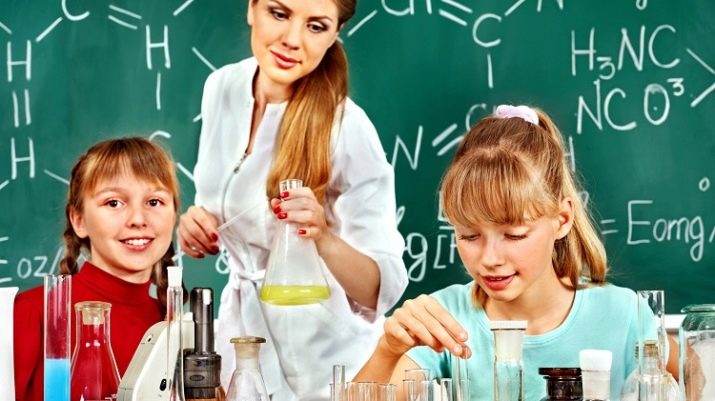
Pros and cons of the profession
Among the advantages of such an activity are:
- fairly high public authority;
- stable demand (professional chemistry teachers will always be needed);
- good work schedule;
- long vacation;
- being under the roof, always warm and dry;
- official employment and the absence of legal risks associated with the “gray zone”.
Of the minuses, it is worth noting:
- not too high salaries;
- a large amount of "paper" work;
- the need to monitor your office;
- increased (compared with other teachers at school) risk;
- the likelihood of conflicts with students;
- the need to work, even if students behave badly and are unwilling to obey.

Job responsibilities
A chemistry teacher in high school has very serious job responsibilities. He must thoroughly learn labor protection instructions and safety regulations. Be sure to master the principles of first aid. All this is needed for:
- training and education of students in accordance with the specifics of the subject;
- optimal socialization of students;
- maintaining a normal training regimen;
- ensuring the safety of people and property in the process of educational experiments;
- organization of extracurricular activities of students.
And also the teacher:
- personally organizes and coordinates the educational process;
- if necessary, makes adjustments to it;
- prepares a working educational program;
- monitors compliance with working hours and breaks;
- systematically checks the result of training;
- maintains discipline in the classroom;
- helps prepare students for exams;
- controls the health of the study room, the necessary equipment.
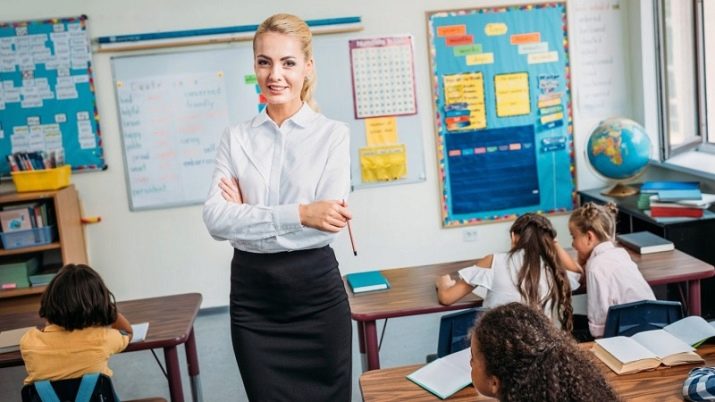
Requirements
There are special requirements for the profession of a chemistry teacher.
Skills
In the description of the methodological experience of a chemistry teacher, special attention should be paid to knowledge of the current state of pedagogy and relevant approaches to pedagogical work. Describing the necessary competencies, it is worth mentioning:
- knowledge of atomic-molecular theory, the theory of electrolytic dissociation, the theory of the structure of organic substances;
- knowledge of the periodic law;
- knowledge of the mechanism and conditions for chemical reactions;
- chemistry teaching methodology;
- psychological foundations of pedagogical activity;
- pedagogical technologies of differential education;
- physiology of primary and secondary school age;
- modern teaching methods.
But even in such a conservative discipline as chemistry, the role of computers and information technology in general is very large. Only a teacher who has the skills to make presentations and graphs, tables and diagrams can count on success. And he himself needed the skill of compiling text documents in order to simplify the preparation of reports, curricula, and other required documentation.
Lessons will be conducted much more interestingly using projectors - and you should also pay attention to their ownership.
From the number of skills and competencies it is useful to consider:
- basic information from economics, sociology;
- possession of related natural sciences (physics, geography) at least to a minimum extent beyond the school curriculum;
- the ability to recognize conflicts in the classroom, to find and eliminate their causes;
- the ability to use Internet resources in training and self-education;
- principles of scientific organization of labor;
- high general cultural level;
- competent knowledge of the mother tongue.

Qualities
A chemistry teacher is primarily a person with a natural-scientific or mathematical mindset. For such a position, logic should come first. But intuition and other similar irrational moments always recede into the background. Guesses and insights in a chemistry lesson, especially when conducting experiments, is not the place. As in any other field of pedagogy.
Here, civic responsibility, a humanistic approach to students and minimal conflict are important.
Good school "chemist":
- attentive and observant;
- always polite;
- self-disciplined and able to maintain discipline (without dictatorship!) in the classroom;
- sets out the training material clearly;
- speaks decently, has no errors of diction;
- communicates effectively with students and colleagues;
- It doesn’t allow emotions to prevail.

Rights and Responsibilities
Decisions made by a chemistry teacher must be implemented by all his students. If they are not executed or are executed poorly, the right to initiate punishment in the prescribed manner appears. The teacher also has the right to pass certification to confirm and improve his formal qualifications. A chemistry teacher can participate in the preparation of the school curriculum, educational program. He may not be deprived of the right to participate in pedagogical councils, in other collegial bodies of the educational institution.
And also from the rights of the teacher it is worth noting:
- receiving all information from the institution’s management and from other teachers for normal work;
- maintaining a good workplace;
- familiarity with all claims to his work, writing objections to them;
- selection of teaching aids and literature (within the curriculum).
A chemistry teacher will be responsible for:
- violation of criminal, civil and administrative laws;
- incomplete performance of official duties or their non-performance;
- causing harm to the life and health of students, other people, property damage (due to intentional acts or negligence, negligence);
- violation of internal regulations, safety regulations (even without harmful consequences).
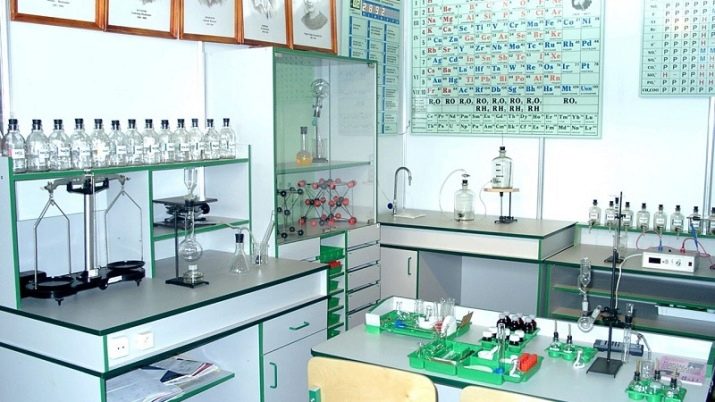
Training and career
To become a chemistry teacher, you have to go to universities, and not rely on secondary education. More precisely, in official documents secondary education is allowed, but a university diploma will always be an additional argument. What subjects you need to take in exams to get a higher education depends on the chosen path. Some people go to a pedagogical university, and there they get the subject matter education that is necessary for teaching chemistry. Others first become professional chemists (scientists, engineers, experts, and so on), and then undergo teacher retraining.
Without any problems, if you have the desire and special additional training, you can become a chemistry teacher with any other pedagogical education (in physics, the Russian language, life history or something else - it does not matter). To study as a chemistry teacher for Siberians is logical at Tomsk Pedagogical University. Residents of the north of the European part of Russia need to pay attention to the Nizhny Novgorod University named after Lobachevsky. Universities of Kazan, Samara, and Saratov also deserve attention. Still worth mentioning:
- Pacific State University;
- Herzen Russian Pedagogical University;
- Moscow Pedagogical University;
- Belgorod Research University;
- Yaroslavl Pedagogical University named after Ushinsky;
- OmGPU;
- Voronezh Pedagogical University;
- South Federal University.
But the chemistry teacher will have to constantly engage in self-education. Particular attention should be paid to the latest achievements of fundamental chemistry. To organize the educational process, new programs are being mastered. However, a good self-education program is always individually tailored. Depending on personal preferences, she focuses primarily on:
- work with especially talented students;
- expanding knowledge of the history of chemistry;
- deepening of ideas about a separate section of chemistry;
- nuances of chemical technology;
- biochemistry, geochemistry, toxicology and so on.
